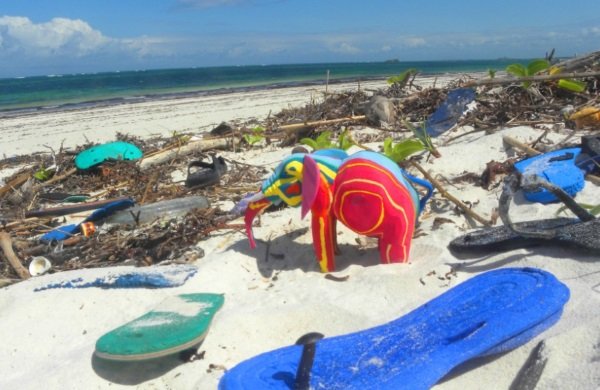The Flap About Flip-Flops
Julie Church’s burgeoning entrepreneurial enterprise had a beneficial side-effect: each discarded flip-flop recycled into an artwork meant one less flip-flop polluting the beach. Cheered on by international environmental groups and funded by sales of their creations, Church formally established Ocean Sole in 2006. Employees were hired locally and plans were put in place to help the firm reach customers far from the beaches of Kiwayu.
“Ocean Sole Africa has swept onto the global stage this week, after 20 years of quietly collecting over 1,000 tonnes of spent flip-flops from Kenyan beaches and recrafting them as artworks,” to quote a company statement. 2013 saw a corporate rebranding – the enterprise was (and is) now known as as “Ocean Sole”. In 2017, buoyed by widespread acceptance of their products and their purpose, Ocean Sole moved to make flip-flop pollution (yes, sadly, “flip-flop pollution” is a thing) a global agenda item.
“We moved to an art and cultural village,” according to the company mission statement, “working with UNEP, UNESCO, UNDP and UNIC on a three year journey to focus on conservation entrepreneurship, supporting local Kenyans with recycling programs. Now we are establishing new global distribution partners and shouting out loud through our new visual identity about flip-flop pollution and destruction to both human and marine life.”
